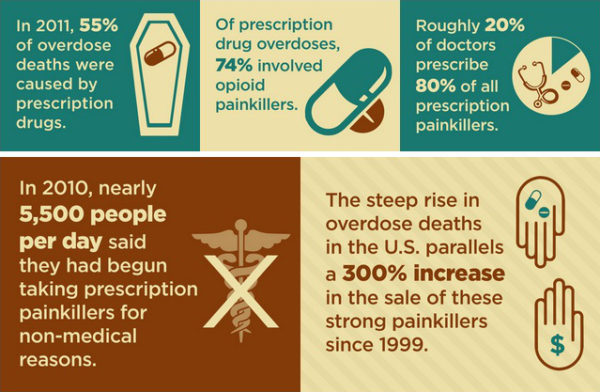

Science Highlight
July 05, 2019
A new study underscores the need for additional research on the effect of medical marijuana laws on opioid overdose deaths and cautions against drawing a causal connection between the two. Early research suggested that there may be a relationship between availability of medical marijuana and opioid analgesic overdose mortality.
In particular, a NIDA-funded study published in 2014 found that from 1999 to 2010, states with medical cannabis laws experienced slower rates of increase in opioid analgesic overdose death rates compared to states without such laws.
A 2019 analysis, also funded by NIDA, re-examined this relationship using data through 2017. Similar to the findings reported previously, this research team found that opioid overdose mortality rates between 1999-2010 in states allowing medical marijuana use were 21% lower than expected.
When the analysis was extended through 2017, however, they found that the trend reversed, such that states with medical cannabis laws experienced an overdose death rate 22.7% higher than expected.
The investigators uncovered no evidence that either broader cannabis laws (those allowing recreational use) or more restrictive laws (those only permitting the use of marijuana with low tetrahydrocannabinol concentrations) were associated with changes in opioid overdose mortality rates.
These data, therefore, do not support the interpretation that access to cannabis reduces opioid overdose.
Indeed, the authors note that neither study provides evidence of a causal relationship between marijuana access and opioid overdose deaths.
Rather, they suggest that the associations are likely due to factors the researchers did not measure, and they caution against drawing conclusions on an individual level from ecological (population-level) data. Research is still needed on the potential medical benefits of cannabis or cannabinoids.
Study:
- Chelsea L. Shover; Corey S. Davis; Sanford C. Gordon; and Keith Humphreys. Association between medical cannabis laws and opioid overdose mortality has reversed over time. PNAS.
Source: National Institute on Drug Abuse
more recommended stories
 Fentanyl Seizures at Border Continue to Spike, Making San Diego a National Epicenter for Fentanyl Trafficking
Fentanyl Seizures at Border Continue to Spike, Making San Diego a National Epicenter for Fentanyl TraffickingFentanyl Seizures at Border Continue to.
 Utah Man Sentenced for Hate Crime Attack of Three Men
Utah Man Sentenced for Hate Crime Attack of Three MenTuesday, August 8, 2023 A.
 Green Energy Company Biden Hosted At White House Files For Bankruptcy
Green Energy Company Biden Hosted At White House Files For BankruptcyAug 7 (Reuters) – Electric-vehicle parts.
 Former ABC News Reporter Who “Debunked” Pizzagate Pleads Guilty of Possessing Child pδrn
Former ABC News Reporter Who “Debunked” Pizzagate Pleads Guilty of Possessing Child pδrnFriday, July 21, 2023 A former.
 Six Harvard Medical School and an Arkansas mortuary Charged With Trafficking In Stolen Human Remains
Six Harvard Medical School and an Arkansas mortuary Charged With Trafficking In Stolen Human RemainsSCRANTON – The United States.
 Over 300 People Facing Federal Charges For Crimes Committed During Nationwide Demonstrations
Over 300 People Facing Federal Charges For Crimes Committed During Nationwide DemonstrationsThe Department of Justice announced that.
